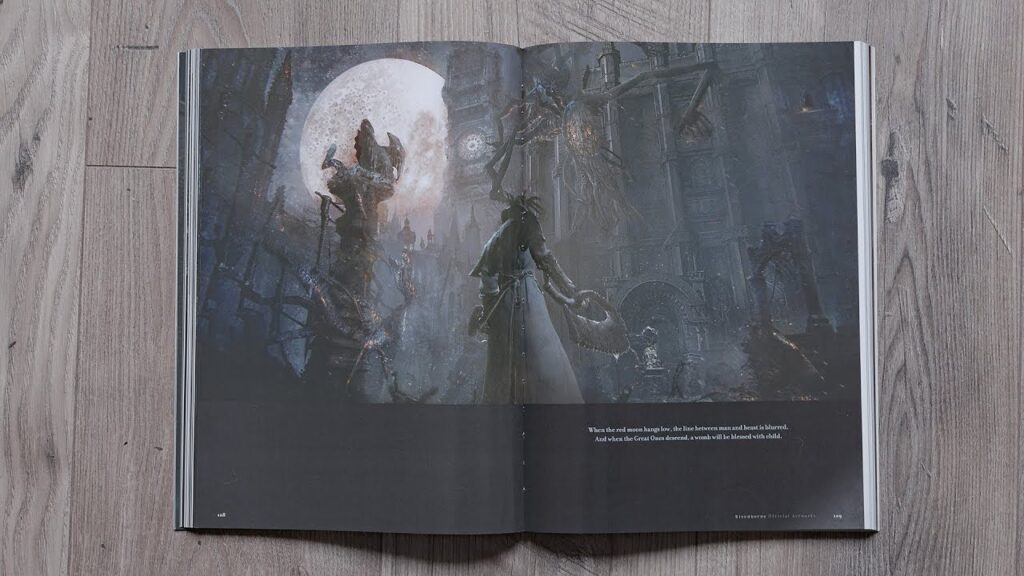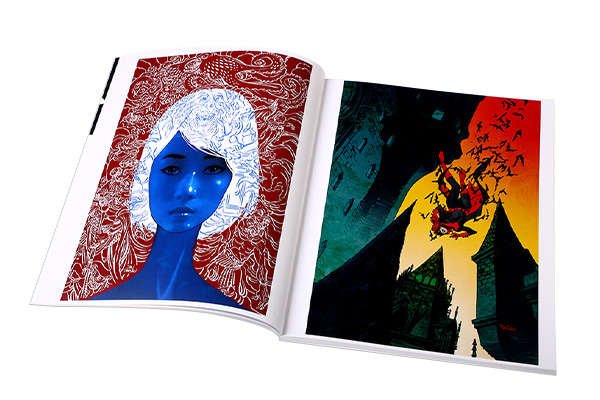Simple Methods to Select the Right Paper for Your art book
Simple Methods to Select the Right Paper for Your art book
Blog Article
Revealing the Secrets of Successful Art Book Printing Techniques for Creative Professionals
When it comes to creating an art book, every detail matters. You need to consider paper choice, binding alternatives, and shade precision. It's not practically visuals; it has to do with how your job reverberates with the target market. The choices you make can raise your job or decrease it. What are the essential strategies that can ensure your art book stands out in a jampacked market? Let's discover these necessary elements better.
Comprehending the Relevance of Paper Selection
When it comes to art book printing, paper selection is important for achieving the wanted visual influence. The kind of paper you pick can greatly influence how colors show up, structures really feel, and just how your art work reverberates with visitors.
A glossy finish can make colors pop, while a matte surface might offer a more subdued, artistic vibe. Additionally, don't overlook the importance of acid-free paper to guarantee long life and protect against yellowing over time.
Examination examples prior to completing your option; this'll help you see how your art interacts with different documents. Inevitably, the ideal paper can raise your art book from normal to extraordinary, making a lasting impression on your target market.
Checking Out Binding Choices for Art Books
As you submerse yourself in the globe of art book printing, checking out binding options is essential for bringing your vision to life. The selection of binding influences not just the aesthetic appeals but likewise the performance of your book.
If your book consists of distinct components, like fold-outs or blended media, lay-flat binding may be your finest wager, allowing web pages to open fully without shedding web content. Choose sensibly, and your binding will certainly enhance the general effect of your art book.
Understanding Color Accuracy in Print

When preparing your documents, convert images to the CMYK color setting, as this is what printers utilize. Bear in mind color rooms; Adobe RGB supplies a broader gamut than sRGB, but it's vital to convert to CMYK prior to publishing to prevent surprises.
Examination prints are indispensable; they allow you see exactly how colors equate to paper. With attention to information, you can achieve vivid, true-to-life colors in your art book.
Guaranteeing High Picture Resolution for High Quality
To assure your art book records the stunning detail of your pictures, high photo resolution is vital. Go for a minimum of 300 DPI (dots per inch) for excellent quality. This ensures that every information in your artwork appears crisp and vivid, allowing your viewers to value the subtleties of your creativity.
When preparing your pictures, constantly begin with the highest resolution feasible. If you're checking artwork, use a high-quality scanner and select the ideal settings. If you're utilizing electronic documents, make sure they're saved in layouts like TIFF or PNG, which keep image high quality much better than JPEGs.
Additionally, consider the final size of your pictures in print. A picture that looks website here great on your screen may not equate well to publish if it's also small. By focusing on high picture resolution, you'll create a specialist art book that showcases your operate in the best light.
The Duty of Format and Layout in Art Books
While crafting an art book, the format and layout play an essential duty in boosting the aesthetic experience. You desire your target market to engage with your work, and a thoughtful design can direct their journey with the pages. Think about the balance between text and images; excessive text can overwhelm, while also little may leave your message unclear.
Use whitespace effectively to offer your artwork breathing space, enabling each piece to radiate. Consider the circulation of the web pages-- exactly how each photo interacts with the next. This can create a narrative that pulls readers in and keeps them captivated.
Don't neglect typography! Picking the best font styles can match your artwork and reinforce your style. See to it your layout straightens with the general motif of your book, creating a cohesive experience. With careful attention to layout and design, your art book can end up being a stunning aesthetic narrative that reverberates with your target market.
Choosing the Right Printing Technique
The right printing technique can considerably affect how your art book is perceived and experienced. Digital printing is best for short runs, supplying quick turnaround times and vibrant shades that bring your artwork to life.

Budgeting for Art Book Production
Budgeting for art book production is crucial, and getting a clear photo of your costs can conserve you from unforeseen prices in the future. Start by defining your budget plan, considering all aspects like layout, printing, and circulation. Research study printing choices to locate one that fits your top quality and amount demands without damaging the financial institution.
Don't neglect to include expenses for products, such as paper and ink, along with any kind of extra functions like embossing or specialty coatings. Variable in design costs, whether you're doing it on your own or working with an expert. Account for advertising and promo, as they're vital explanation for reaching your audience.

Often Asked Inquiries
What Are the Best Printers for Art Book Projects?
When picking printers for your art book projects, consider high-quality inkjet designs like Canon or Epson. They deliver vibrant colors and sharp details, ensuring your artwork stands apart magnificently on every web page.
Just how Do I Prepare My Apply For Printing?
To prepare your declare printing, assurance you have actually set the right resolution, color setting, and file layout (art book). Do not neglect to consist of bleed and crop marks, so your artwork publishes flawlessly without any kind of undesirable borders
What Is the Average Turn-around Time for Art Book Printing?
The standard turn-around time for art book printing varies, but you can generally anticipate it to take in between two to four weeks. Variables like intricacy and volume can affect this timeline, so strategy as necessary.
Can I Print Art Books in Small Quantities?
Yes, you can publish art books in small amounts. Lots of printing services offer short-run alternatives, permitting you to create limited versions without high in advance expenses. This flexibility aids display your work while managing spending plan restrictions efficiently.
What Are Typical Mistakes to Avoid in Art Book Printing?
When publishing art publications, avoid typical blunders like poor file resolution, overlooking color calibration, and ignoring to proofread. Don't take too lightly the value of picking the ideal paper and binding techniques for your job.
Report this page